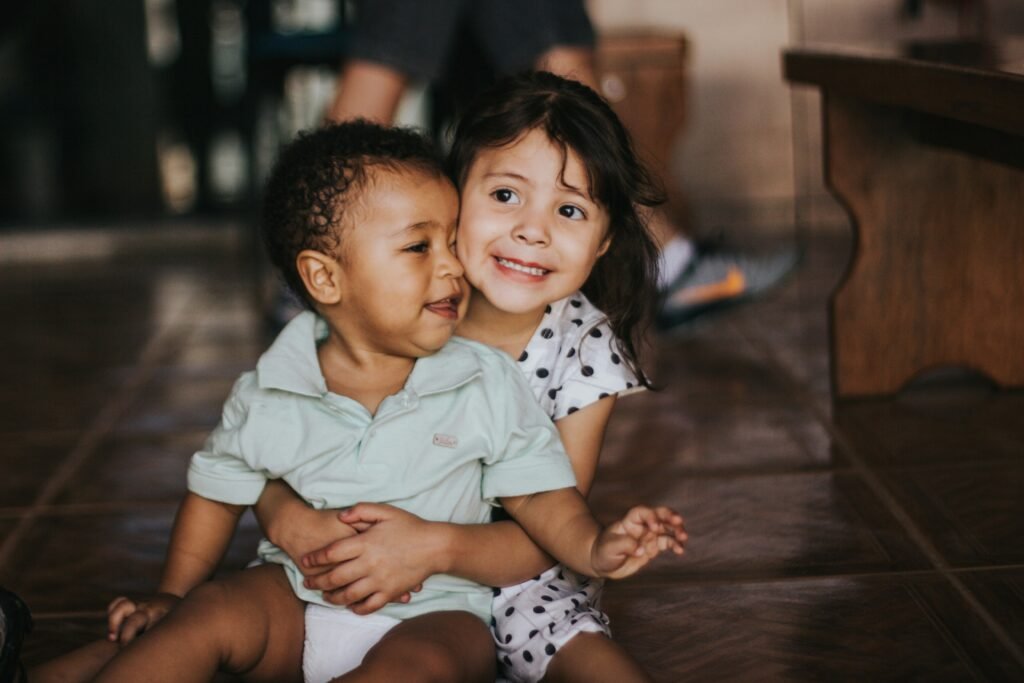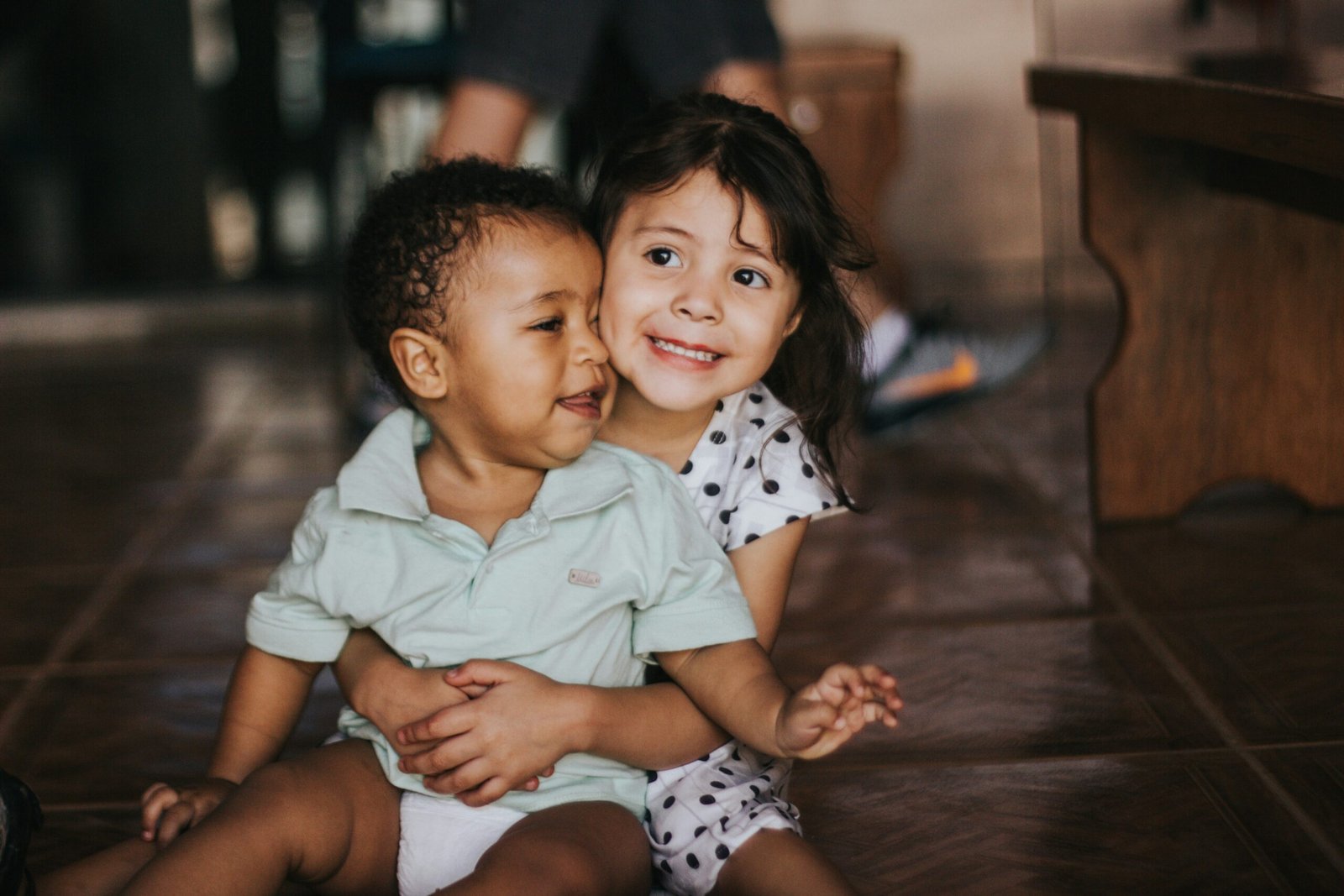Imagine you’re faced with a difficult decision – whether to reconcile or separate from your partner. It’s an emotional rollercoaster, filled with uncertainty and countless factors to consider. One crucial aspect that often gets overlooked is the role children play in this decision. In this article, we explore the significance of children in the choice between reconciliation and separation, shedding light on how their well-being and emotions have a profound impact on your final decision.
The Emotional Impact on Children
Emotional distress
When parents are going through conflict, it’s no secret that children are deeply affected emotionally. Witnessing arguments, tension, or even physical altercations between parents can generate a great deal of distress. Children may feel anxious, scared, and uncertain about what the future holds for their family. This emotional distress can manifest in various ways, such as difficulty sleeping, loss of appetite, or even regression in behavior.
Sense of responsibility
In the midst of parental conflict, children often develop a sense of responsibility for the problems their parents are facing. They may believe that they are somehow at fault for the disagreements or that they should be able to fix the situation. This misplaced sense of responsibility can be overwhelming for a child, as they internalize blame and feel burdened with the weight of their parents’ issues.
Conflicted loyalty
Another challenging aspect of parental conflict for children is the issue of conflicted loyalty. Children may feel torn between their parents, caught in the middle of their disagreements. This can create a tremendous emotional strain as they try to navigate maintaining relationships with each parent while also feeling like they have to choose sides. Conflicted loyalty can lead to feelings of guilt, confusion, and a profound sense of loss for the stability and harmony they once knew.
The Impact of Parental Conflict on Children
Emotional harm
Parental conflict can have a lasting impact on children’s emotional well-being. Continual exposure to arguments and negativity can lead to increased anxiety, depression, and low self-esteem. Children may begin to question their own value and worth, believing that the conflict between their parents is a reflection of something they have done wrong. These emotional scars can persist into adulthood and affect their overall mental health.
Behavioral problems
Children who are exposed to ongoing parental conflict may exhibit various behavioral problems as a result. They may become more aggressive, defiant, or withdrawn. These behaviors can be seen as a way of coping with the distress and uncertainty they are experiencing. Furthermore, children may struggle with impulse control and have difficulty managing their emotions, leading to disruptive behavior at home, school, or other social settings.
Academic challenges
The impact of parental conflict on children is not limited to emotional and behavioral issues alone; it can also have significant consequences on their academic performance. The distress and instability caused by ongoing conflict can interfere with a child’s ability to concentrate, focus, and engage in their studies. As a result, they may experience a decline in academic performance, difficulty completing assignments, and lower overall achievement in school.

Children’s Coping Mechanisms
Need for stability
Amidst parental conflict, children have an inherent need for stability and a sense of security. Offering them a stable environment becomes crucial in helping them cope with the emotional challenges they face. Providing consistent routines, predictability, and a safe space can help alleviate some of the anxiety and uncertainty they may be experiencing.
Adapting to change
Change is inevitable in any family dynamic, especially during times of conflict and separation. Children must learn to cope with these changes and adapt accordingly. Encouraging flexibility and resilience can assist children in navigating the transitions that result from parental conflict. It’s essential to provide them with support, reassurance, and guidance as they adjust to new living arrangements or changing routines.
Coping strategies
Teaching children healthy coping strategies can empower them to navigate the emotional challenges they encounter as a result of parental conflict. Encouraging open communication, journaling, engaging in creative outlets, and seeking support from trusted adults or friends can all be effective means of coping. Equipping children with these strategies can foster their emotional resilience and help them develop healthy coping mechanisms that will serve them well throughout their lives.
Communication with Children
Honesty and transparency
open and honest communication with children is vital during parental conflict. It is essential to provide age-appropriate information about the situation and reassure them that the challenges they are facing are not their fault. Using simple and clear language, ensuring they feel heard and understood, and answering their questions truthfully can foster trust and alleviate some of the anxiety and confusion they may be experiencing.
Age-appropriate discussions
When discussing parental conflict with children, it is important to tailor the information to their age and level of understanding. Younger children may require simpler explanations while older children can handle more complex discussions. Adjusting the language and level of detail ensures that children receive the information they need without overwhelming or burdening them unnecessarily. It is crucial to strike a balance between transparency and protecting their emotional well-being.
Listening and validation
In times of parental conflict, children need to feel heard and validated. Active listening is key to ensuring children feel understood and supported. Creating a safe space for them to express their thoughts, fears, and concerns without judgment fosters healthy communication. Validating their emotions and experiences shows them that their feelings are valid and acknowledged, helping to build their self-confidence and emotional resilience.

Children’s Influence on Parents’ Decision
Parental considerations
While parents ultimately make decisions regarding separation or reconciliation, it is important to consider the impact these choices will have on their children. Understanding the potential consequences and seeking professional advice can help parents make more informed decisions. Parental considerations should take into account the emotional well-being, stability, and long-term outcomes for their children.
Listening to children’s preferences
Children should have a voice in decisions that directly affect their lives. Parents should create a supportive environment where children feel comfortable expressing their preferences and concerns. While children’s input should be considered, it is essential to strike a balance between taking their opinions into account and making decisions that are in their best interests, taking into consideration factors such as their maturity level and understanding of the situation.
Balancing children’s needs
When making decisions that impact the family dynamic, it is crucial to balance the needs of the children with the needs of the parents. Striving for a collaborative approach where both parents work together to create a nurturing environment is essential. Recognizing that compromise and flexibility are key components in ensuring the well-being of the children can help parents navigate the complexities that arise during times of conflict and change.
Co-parenting and Parental Collaboration
Effect on children’s well-being
Effective co-parenting and parental collaboration can have a profound impact on the well-being of children. When parents can put aside their differences and work together in the best interest of their children, it provides a sense of stability and security. Children are more likely to thrive when they have consistent parental involvement and witness their parents working together harmoniously.
Consistency and routine
Maintaining consistency and routine between households can provide children with a sense of security and predictability. Co-parents can collaborate to establish consistent rules, boundaries, and expectations for their children. This consistency across both households helps children feel supported and enables them to adjust more easily to the challenges of parental separation.
Eliminating conflict
Minimizing conflict between co-parents is crucial in creating a healthy and nurturing environment for children. It is essential for parents to communicate respectfully and effectively, focusing on the well-being of their children rather than engaging in ongoing disputes. Avoiding negative discussions or arguments in front of children can help protect them from the emotional distress caused by conflict and promote a more peaceful co-parenting relationship.

Child Custody and Visitation
Determining custody arrangements
Determining custody arrangements requires careful consideration to ensure the best interests of the children are met. Prioritizing the well-being and stability of the children should be at the forefront when making these decisions. Factors such as the children’s age, relationship with each parent, and ability to adjust to new living arrangements should all be taken into account. Consulting with professionals, such as family lawyers or therapists, can provide valuable guidance and support during this process.
Parental involvement
Regardless of the custody arrangement, maintaining a strong and meaningful relationship with both parents is essential for children’s well-being. Children benefit from having ongoing involvement with both parents, allowing them to develop a sense of security and a positive self-identity. Co-parents should foster open and consistent communication and ensure visitation schedules are adhered to, prioritizing the child’s needs and desires when determining the frequency and duration of visits.
Minimizing disruption
Transitioning between households can be challenging for children, as it often entails adjusting to different rules, routines, and expectations. Minimizing disruption during the transition is critical in helping children adapt to new environments. Co-parents should strive for consistency in parenting styles and expectations to make the adjustment as smooth as possible. Maintaining open communication between households can also help alleviate confusion and provide a sense of continuity for the child.
Parenting Agreements and Parental Roles
Cooperative co-parenting
Creating a cooperative co-parenting relationship is beneficial for both the parents and the children involved. Developing a parenting agreement that outlines responsibilities, decision-making processes, and expectations can help co-parents establish clear boundaries and guidelines. This document serves as a reference point for both parents, ensuring consistency in parenting practices and reducing potential conflicts.
Supporting children’s emotional needs
Both parents play a crucial role in supporting their children’s emotional needs during times of conflict and separation. Co-parents should work together to create a nurturing and supportive environment that encourages open communication and emotional expression. Sharing information about the child’s emotional well-being, milestones, and challenges helps ensure both parents can provide the necessary support and understanding.
Shared decision-making
In order to maintain a sense of stability and consistency, shared decision-making between co-parents is important. Major decisions regarding education, healthcare, extracurricular activities, and general well-being should be discussed and agreed upon jointly. Including the child, when appropriate, in decision-making processes can provide them with a sense of agency and reinforce that their opinions are valued.
Seeking Professional Help
Therapy for children
When children are experiencing emotional distress as a result of parental conflict, seeking therapy can be highly beneficial. A trained therapist can provide children with a safe space to express their emotions and develop coping strategies. Therapy can help children navigate their feelings, improve their self-esteem, and develop resilience to overcome the challenges they face.
Counseling for parents
Parents experiencing difficulty navigating parental conflict or co-parenting challenges can also benefit from counseling. A therapist can provide guidance and support to help parents communicate effectively, manage their emotions, and make informed decisions in the best interest of the children. Counseling can also provide a neutral space for constructive communication between co-parents, facilitating the resolution of conflicts and promoting a healthier co-parenting relationship.
Mediation and collaboration
In situations where parents are struggling to find common ground or resolve conflicts amicably, mediation can be an effective tool. A trained mediator can facilitate communication and negotiation between co-parents, helping them reach mutually acceptable agreements. Mediation encourages collaboration, reduces the likelihood of escalating conflict, and provides a constructive way to address disagreements and find solutions that prioritize the children’s well-being.
The Long-Term Impact on Children
Emotional well-being
The long-term impact of parental conflict on children’s emotional well-being cannot be overstated. Growing up in an environment marked by ongoing conflict can have lasting effects on their self-esteem, mental health, and ability to form healthy relationships. However, parents who prioritize their children’s emotional needs and seek support and professional help when necessary can mitigate many of these negative effects, fostering emotional resilience and creating a foundation for future well-being.
Relationship patterns
Children learn by example, and their exposure to parental conflict can shape their understanding of relationships. Witnessing unhealthy conflict resolution, lack of communication, and intense disputes can normalize these behaviors for children, potentially perpetuating similar patterns in their own relationships later in life. However, parents who model effective conflict resolution, demonstrate respectful communication, and prioritize their children’s emotional needs can help break these negative relationship cycles.
Effects on future relationships
The impact of parental conflict can extend beyond childhood and into adulthood, affecting individuals’ future relationships. Children who grow up in conflicted environments may struggle with trust, intimacy, and forming secure attachments in their adult relationships. However, with appropriate support and resources, these challenges can be overcome. Therapy, counseling, and self-reflection can help individuals recognize and address the negative patterns or beliefs they have acquired, allowing them to develop healthier and more fulfilling relationships in the future.
In conclusion, parental conflict has a profound emotional impact on children. They can experience emotional distress, develop a sense of responsibility for the conflicts, and struggle with conflicted loyalty. The impact extends to their emotional well-being, behavioral problems, and academic challenges. Children cope by seeking stability, adapting to change, and developing coping strategies. Communication with children should involve honesty, transparency, age-appropriate discussions, and active listening. Children’s preferences should be considered, and their needs should be balanced with parental considerations. Co-parenting and parental collaboration are essential for children’s well-being, emphasizing consistency, routine, and minimizing conflict. Child custody and visitation arrangements should prioritize children’s best interests and minimize disruption. Cooperative co-parenting, supporting children’s emotional needs, and shared decision-making contribute to a healthier family dynamic. Seeking professional help, such as therapy for children and counseling for parents, can be highly beneficial. The long-term impact on children includes emotional well-being, relationship patterns, and effects on future relationships. By recognizing the significance of the emotional impact on children and prioritizing their needs, parents can help mitigate the negative consequences and create a healthier and more stable environment for their children.
Christopher Conway, the innovative mind behind “Love Blueprints,” is a seasoned relationship expert and author. His insightful guidance, drawn from years of experience and study, offers transformative strategies for modern love and dating. Christopher’s commitment to enhancing romantic connections has made “Love Blueprints” a go-to resource for those navigating the complexities of relationships.




